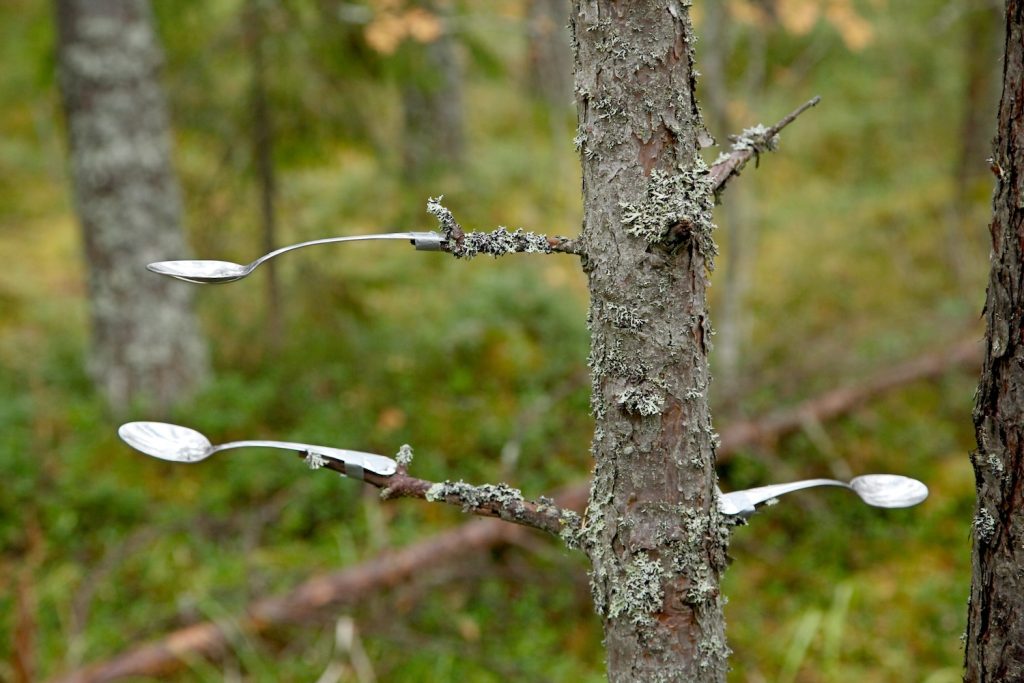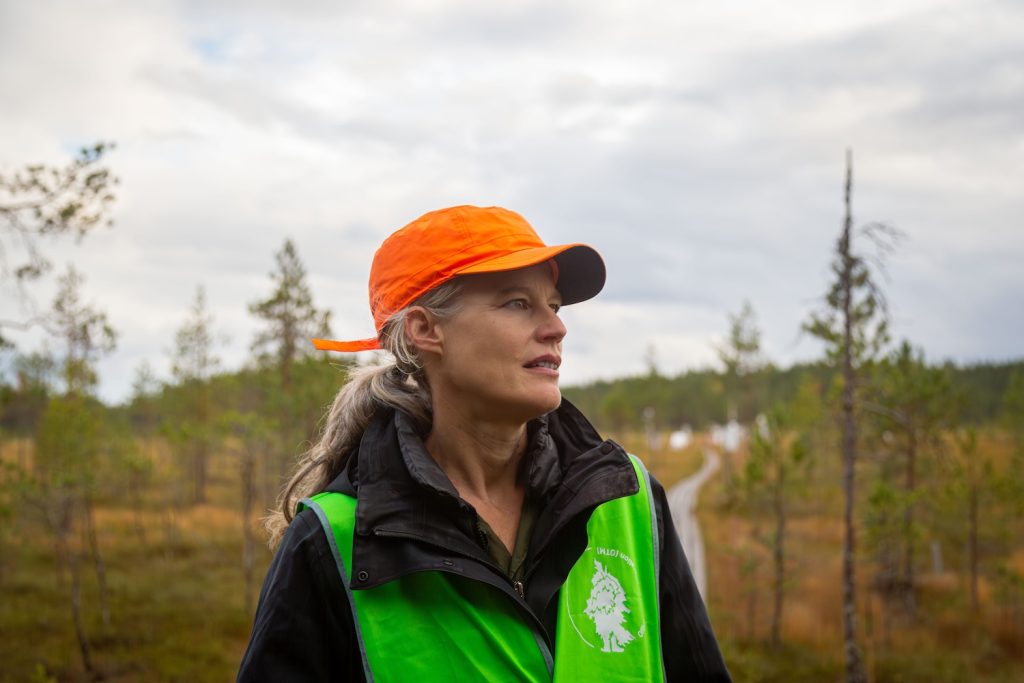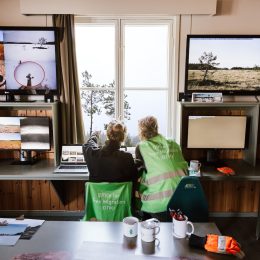Agnes Meyer-Brandis
As Trees Go By
Serlachius Manor 12.4.2025—19.4.2026
Agnes Meyer-Brandis brings the audience into a multi-sensory interaction with trees.
Agnes Meyer-Brandis (b. 1973) has long observed trees, forests and the atmosphere, whose complex and peculiar phenomena could, without her art, easily go unnoticed. Wandering trees, forest colour and the scents emitted by trees are examples of topics that Meyer-Brandis has explored artistically and in dialogue with natural scientists in Finland and around the world.
A fruitful collaboration with the Hyytiälä Forest Station of the University of Helsinki in Pirkanmaa and the Climate Whirl Arts Program began in 2013, and the exhibition will be the world premiere of a multi-channel video work, As Trees Go By, filmed in 2021–2025 in Ruovesi, in the protected Siikaneva fen. The exhibition is curated by Ulla Taipale.

Agnes Meyer-Brandis
Agnes Meyer-Brandis (b. 1973) is a German visual artist. She has studied art in Maastricht, Düsseldorf and Cologne, and the fictional Institute for Art & Subjective Science (FFUR) she founded asks “questions that are not expected to be answered”.
She is known for her artistic practice stemming from nature and natural sciences as well as for her works that deal with topics on a wide scale related to, for example, forests, trees, the atmosphere, clouds, climate, planetary events or synthetic biology.
As an artist, Agnes Meyer-Brandis’ skill lies in her ability to absorb and understand scientific knowledge, from which she offers new dimensions using her storytelling, visual and spatial skills. A surreal and humorous approach is characteristic of works in which research data on, for example, the impact of climate change on trees is presented using artistic freedom and making fun of the absurd. Her works are conceptually multidimensional and often multidisciplinary installations.
She is one of the few artists who has participated in a scientific weightlessness flight (German Space Agency in 2010) or observed the behavior of mysterious Moon Geese during a total solar eclipse (Ob River in Siberia, 2008).
For the past ten years, her work has focused on trees. Her art provides sensory-based tools for interacting with trees and understanding them as active agents. The works based on research data revel in artistic freedom and give room for imagination and speculation.
Long-term work (since 2013->) at the Hyytiälä Forest Station as an artist-in-residence and as a visiting researcher in the Climate Whirl Art Programme and Research Centre for Atmospheric and Earth System Sciences has enabled a dialogue with leading researchers in the field and long-term work at the research station, which is located in the forest in Juupajoki.
Meyer-Brandis’ works have been exhibited all over the world, including the Centre Pompidou in Paris, the MIT Media Lab in Cambridge and the Ars Electronica Center in Linz, Austria. She has been awarded several prizes, including the Prix Ars Electronica’s “Award of Distinction” for several years and the European Kairos Award in 2020.
Her works are comprised in several collections, and in 2017 her work The Moon Goose Analogue: Lunar Migration Bird Facility was acquired by the Serlachius Foundation.

The creation of the works in the exhibition has been supported by:
Finnish Cultural Foundation / Tampere Region
The Alfred Kordelin Foundation
INAR (Centre for Atmospheric and Earth System Sciences), University of Helsinki
ACCC – Centre of Excellence for Atmosphere and Climate
Hyytiälä Forest Station, University of Helsinki
Taike, Arts Promotion Centre Finland
Medienboard Berlin Brandenburg
Serlachius
Image above: Agnes Meyer-Brandis, Office for Tree Migration – Siikaneva, 2025, © Agnes Meyer-Brandis, VG-Bild Kunst, 2025


